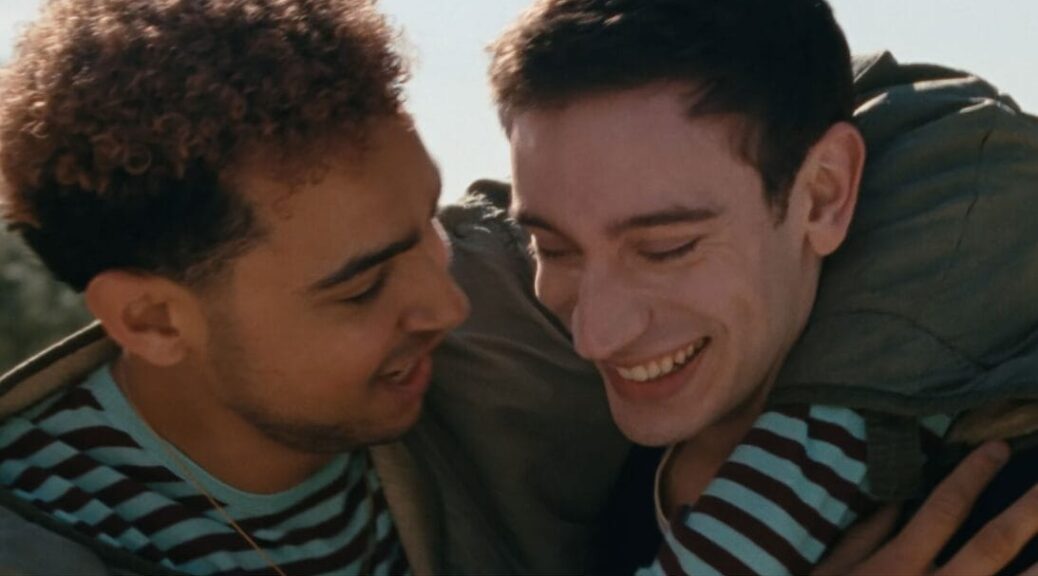Lurker
by Hope Madden
Like 2021’s Poser, Noah Dixon and Ori Segev’s thriller of fandom gone feral, writer/director Alex Russell’s Lurker hangs on the cringey relatability of its awestruck lead. Who hasn’t dreamed of being taken into their hero’s inner circle?
Théodore Pellerin is Matthew. Working in a hip LA clothier, Matthew meets rising pop phenom Oliver (Archie Madekwe, Saltburn, Gran Turismo). Quietly, expertly, Matthew manipulates the situation to become the opposite of what he really is: sincere, oblivious to Oliver’s fame, an outsider with taste. Smitten, Oliver invites Matthew to a show.
What follows is a series of steps in Matthew’s budding friendship with the emotionally unfaithful Oliver. Russell never overplays the sleights of hand, the seeds sown, as Matthew the opportunist situates himself within Oliver’s posse.
Russell’s nimble screenplay delivers something sharp, bright, and delightfully morally murky. Though Matthew possesses a dorky, humble charm, we recognize his deception the moment he meets Oliver, so we’re never expected to fully empathize with or root for him.
At the same time, Oliver’s fickle affection makes him hard to pity. The whole entourage swirls with narcissism and insecurity. There’s something a touch Shakespearean about the drama that gives it a timeless quality, while its situation within the “attention as currency” climate lends it immediacy and relevance.
Madekwe is the perfect blend of charm, arrogance, insincerity and vulnerability. His character arc is wild, but the actor never misses a step.
Pellerin delivers a subtly unnerving performance, endearing one moment, volatile the next. The anxiety seething just below Matthew’s smiling surface informs an insecurity that recognizes itself in Oliver. It’s here that Russell’s perceptive screenplay does the most psychological damage, fully separating Lurker from other poisonous fan films.
It’s a quietly effecting study of the way the desire for fame alienates and isolates, whether you’ve achieved some level of fame or you’re happy to siphon it from someone else. Russell’s direction and his cast keep you anxious and keep you guessing.





